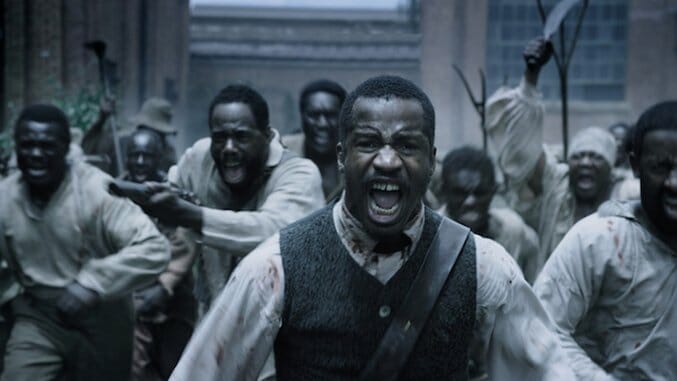The Birth of a Nation

In the interest of staying true to my general philosophy of separating the art from the artist, this review of The Birth of a Nation will relegate mentions of the controversy surrounding writer/producer/director/star Nate Parker—regarding rape accusations lodged against him and this film’s co-scenarist, Jean Celestin, in 1999 by a female Penn State student who later committed suicide in 2012, charges of which Parker was acquitted—to this paragraph only. Whether or not that sordid personal history, and the lengths to which Parker continues to maintain his innocence, ought to be taken into account in assessing the movie he has made is entirely up to the individual viewer. Every work of art, however, deserves to be taken on its own terms, outside of extra-textual concerns. And in the case of Parker’s film, its merits and shortcomings are quite gleamingly evident without such outside factors weighing on its head.
Among its merits is the sheer anger toward the dehumanizing institution of slavery it exudes throughout. That anger starts with Parker’s choice of the film’s title: By adopting the same title as D.W. Griffith’s groundbreaking 1915 epic, his film brazenly attempts to redress what is commonly considered Griffith’s endorsement of white supremacy in its valorization of the Ku Klux Klan. Then there’s Parker’s subject: Nat Turner (played by Parker himself), the literate preacher slave who, in Southampton Country, Va., in 1831, led a band of slaves and free blacks into a violent rebellion against white slave-owners—a stark contrast to the scenes of the KKK rescuing a poor white family from predatory blacks in Griffith’s film.
-

-

-

-

-

-

-

-

-

-

-

-

-

-

-

-

-

-

-

-

-

-

-

-

-

-

-

-

-

-

-

-

-

-

-

-

-

-

-

-








































